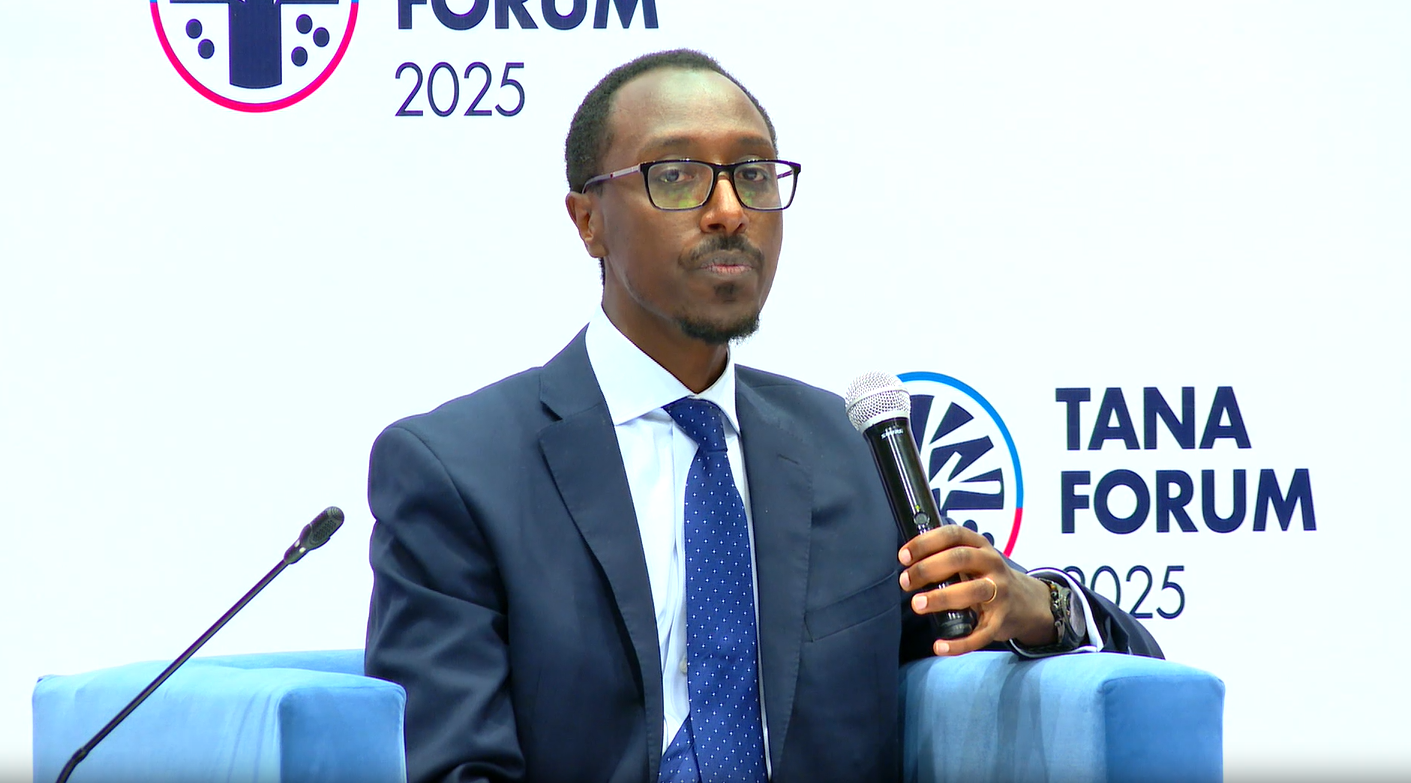True Progress Comes from Economic Empowerment, Says Foreign Minister Gedion - ENA English
True Progress Comes from Economic Empowerment, Says Foreign Minister Gedion

Addis Ababa, October 25, 2025 (ENA) -- Africa's true progress will come from economic empowerment, and aspirations of the continent for a larger global role will lack credibility without economic clout, Foreign Minister Gedion Timothewos noted.
Speaking at the Tana Forum underway in Addis Ababa, the Minister noted the limitations of relying solely on political leaders for Africa's prosperity, asserting that true progress will come from economic empowerment.
"We must acknowledge that Africa's advancement cannot be delivered by foreign ministers or political figures alone," he stated, adding that "the real determinant of our success will be the economy, and we cannot expect foreign investors to act altruistically."
Gedion stressed the need for African nations to foster local entrepreneurship and investment, citing Ethiopian Airlines as a prime example of a successful indigenous corporation that has partnered with various stakeholders to create wealth and add value within the continent.
Also, advanced investors from Kenya and Nigeria have begun investing in Ethiopia, notably investments including telecommunications from Kenyan operators and a major fertilizer plant established by Nigerian entrepreneur Aliko Dangote.
"This model of investment is crucial for enhancing our economic standing and achieving prosperity," he said. "Without economic clout, our aspirations for a larger global role will lack credibility."
He further underscored the importance of investing in youth capacity, particularly in light of technological advancements, calling for a focus on education and skills development, urging African nations to embrace innovations in artificial intelligence, bioengineering, and quantum computing.
"As we look to the future, Africa must position itself as a driver of global growth and innovation," he underlined, stating that this requires significant investment in infrastructure and the potential of the youth.
On his part, former Prime Minister of Burkina Faso and Acting Chairperson of Tana Forum Board, Lassina Zerbo, pointed out that the world is undergoing significant changes, with the foundations of the post-World War II order facing unprecedented challenges.
Zerbo said that new power centers are emerging, alliances are being recalibrated, and decision-making spaces are increasingly contested.
"Africa must (therefore) choose whether to actively shape its transformation or merely endure its consequences," he stated, warning that two strategic risks —marginalization and fragmentation- threaten the continent’s long-term stability.
The risk of marginalization could see Africa once again becoming a chessboard for external strategies, where our resources are exploited for others interests; while fragmentation dilutes Africa's collective voice, making it vulnerable to external manipulation and missed opportunities.
Citing ongoing turmoil in Sudan, insecurity in eastern Congo, and persistent instability in the Horn of Africa, he emphasized that these conflicts are interconnected, exacerbated by terrorism, climate pressures, and cyber threats.
However, Zerbo also identified a historic opportunity for Africa to build a modern peace framework, one that is defended and sustained by Africans themselves.
"This vision is grounded in the African peace and security architecture and the African Free Trade Area," he explained, outlining strategic imperatives — ownership and agency, economic transformation and multilateralism with responsibility.
Former President of Malawi and Tana Forum Board Member, Joyce Banda, emphasized the need for inclusive leadership to empower Africa's youth and to address the continent's wealth disparities.
"As leaders, we must remind ourselves that the resources (in Africa) belong to the people we serve, not to us," Banda stated, stressing the importance of stewardship over Africa's wealth.
Banda also addressed the issue of conflict on the continent, noting that many conflicts are fueled by foreign interests and result in significant financial losses for African nations.
To foster peace and development, Banda called for an all-inclusive approach that engages young people in decision-making processes, expressing concern over the plight of young Africans who migrate in search of opportunities.
"Every African leader must create opportunities at home so that youth do not feel compelled to leave," she urged.
Banda also underscored the importance of including women in leadership roles, citing improvements in female representation across the continent.
Women are doing better than men, and their involvement is vital for sustainable development, she said, advocating for their inclusion in decision-making processes.
Banda finally stressed the need for proactive measures to prevent conflicts before they escalate, calling on the African Union and member states to prioritize peacekeeping efforts and support youth involvement in the initiatives.